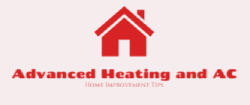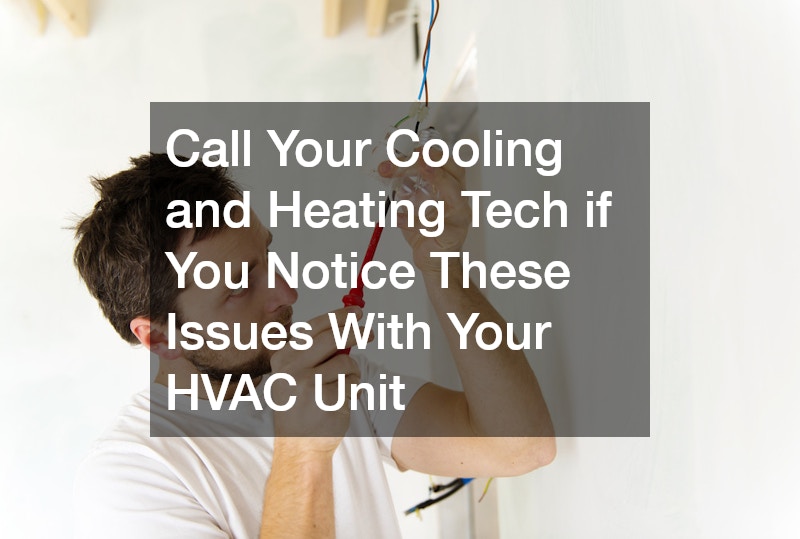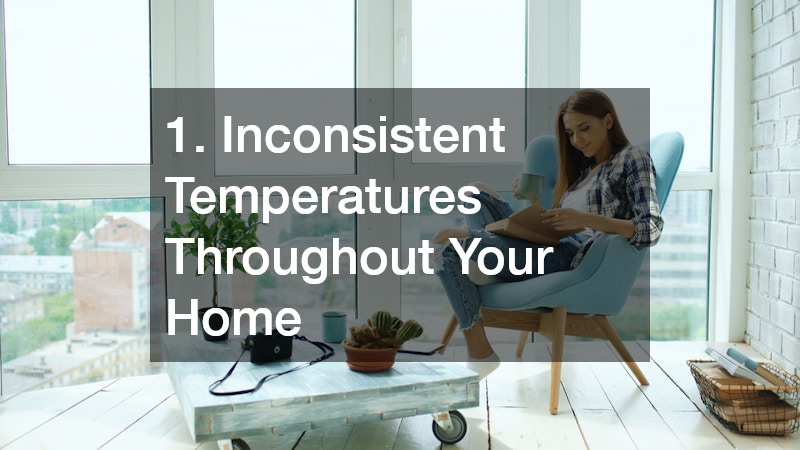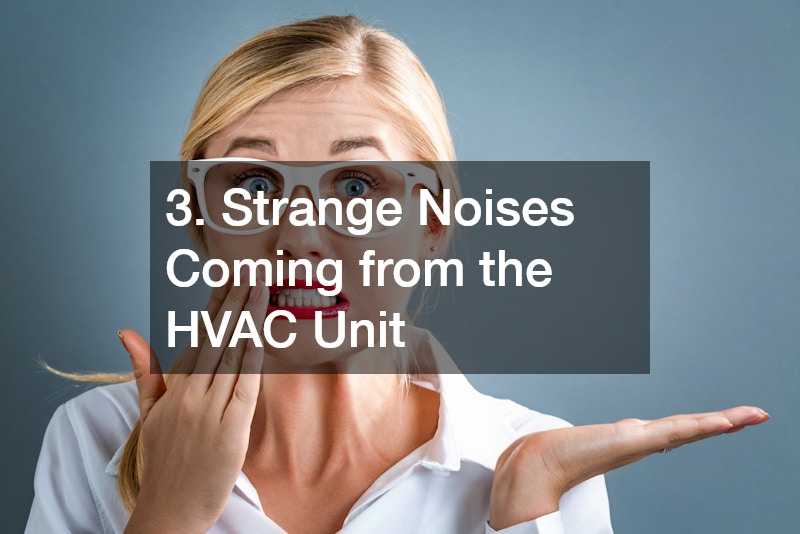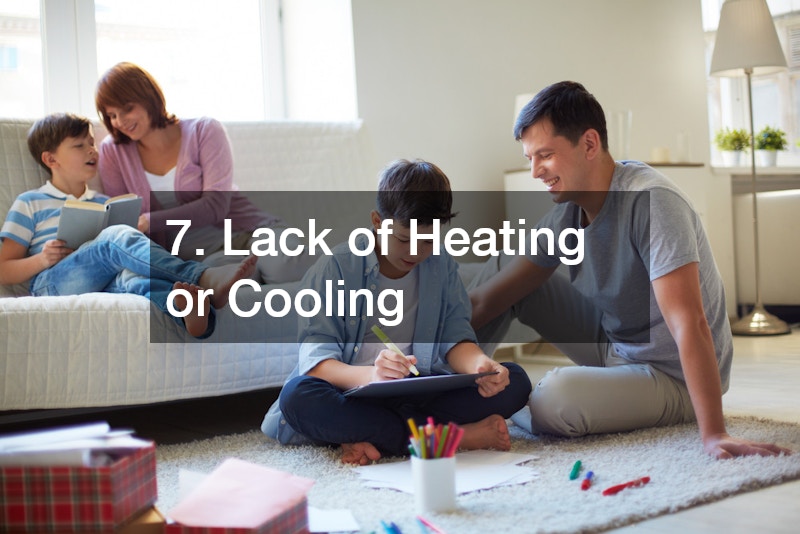Maintaining your HVAC system is critical for ensuring your home remains comfortable, efficient, and safe year-round. Whether it’s the heat of summer or the dead of winter, an HVAC unit that runs smoothly can make the difference between comfort and frustration. However, like any mechanical system, HVAC units are not immune to problems. Ignoring small warning signs can often lead to major repairs or complete system breakdowns, costing you time, money, and convenience.
1. Inconsistent Temperatures Throughout Your Home
Have you ever noticed that some rooms in your home are consistently warmer or cooler than others? Inconsistent temperatures can be incredibly frustrating, especially if you’re constantly adjusting the thermostat without any noticeable improvement. This issue often stems from underlying problems within your HVAC system, such as leaky or blocked ductwork, a malfunctioning thermostat, or improper system installation. In some cases, it could even be the result of an aging unit that is struggling to meet the demands of your household.
When air cannot circulate evenly throughout your home, it creates hot and cold spots that can significantly impact your comfort. Not only that, but inconsistent temperatures can also be a sign of inefficiency, meaning your HVAC unit is working harder than necessary, leading to higher energy consumption and utility bills. Instead of putting up with discomfort or guessing what the problem might be, it’s best to call a heating tech to perform an HVAC inspection. They can accurately diagnose the problem and make recommendations to help restore even temperatures and ensure consistent comfort.
2. Poor Airflow from Vents
If you notice weak or poor airflow coming from your vents, it’s a clear indication that something is amiss with your HVAC system. Adequate airflow is essential for heating and cooling your home effectively. Poor airflow not only makes it difficult to regulate indoor temperature but can also indicate a variety of issues, such as clogged air filters, blocked or leaky ductwork, or problems with the blower motor.
Air filters play a significant role in maintaining good airflow. Over time, filters can become clogged with dust, dirt, and other particles, restricting the amount of air that can pass through. While replacing air filters regularly is a simple way to maintain airflow, sometimes the problem is more complex. For instance, issues with the blower motor or ductwork obstructions can also lead to poor airflow, requiring the attention of an HVAC professional.
Ignoring poor airflow can lead to unnecessary strain on your HVAC unit, causing it to work harder and wear out faster. If you’re experiencing reduced airflow, it’s best to contact a heating tech. They can assess the problem, clean the components, and ensure that air moves freely throughout your home, improving both efficiency and comfort.
3. Strange Noises Coming from the HVAC Unit
Every HVAC system makes some noise during operation, but if you start hearing unusual or loud sounds, it’s time to pay attention. Strange noises can be indicative of several different problems within your unit, and understanding these sounds can help you determine when to call in a professional.
For instance, a rattling sound could indicate loose components or debris trapped in the system, while a squealing noise might mean that a belt has slipped or that bearings need lubrication. A banging noise could be a sign of a serious issue, such as a broken component or an unbalanced blower wheel. Meanwhile, grinding noises are particularly concerning, as they often indicate metal components making contact due to a lack of lubrication or damaged parts.
These noises, if left unattended, can lead to more severe damage and even system failure. It’s always better to err on the side of caution—if you hear any of these strange sounds, call a heating tech immediately. HVAC contractors can diagnose the source of the noise and perform the necessary repairs to prevent further damage and ensure your system continues to operate safely.
4. Unpleasant Odors Emitting from the Vents
Unpleasant odors coming from your vents are never a good sign. There are several reasons why your HVAC system might emit strange smells, and each type of odor can indicate a different underlying problem. If you notice a musty smell, it could be a sign of mold or mildew growth in your ductwork or unit. Mold growth can occur when there is excessive moisture in the system, often due to clogged drain lines or high humidity levels. Mold and mildew not only affect the efficiency of your HVAC system but also pose serious health risks to you and your family, particularly for individuals with allergies or respiratory conditions.
On the other hand, if you detect a burning smell, it could indicate an electrical problem, such as overheating components, faulty wiring, or a motor that is struggling to function. Electrical issues should never be taken lightly, as they can pose significant fire hazards.
If you notice any type of unpleasant odor coming from your vents, it’s crucial to call a heating tech as soon as possible. A professional can identify the source of the smell, whether it’s mold, burnt wiring, or another issue, and take the necessary steps to rectify the problem, ensuring the safety and comfort of your home.
5. Short Cycling
Short cycling is a common HVAC issue where the system frequently turns on and off without completing a full heating or cooling cycle. This behavior is problematic because it prevents your home from reaching the desired temperature and puts unnecessary stress on your HVAC unit. Short cycling can be caused by a variety of issues, such as a malfunctioning thermostat, refrigerant leaks, or an oversized system that is too powerful for your home.
Not only is short cycling inefficient, but it also leads to increased energy consumption, resulting in higher energy bills. Moreover, the repeated starting and stopping put a lot of strain on your system’s components, which can lead to premature wear and tear and ultimately shorten the lifespan of your HVAC unit.
If you notice that your HVAC system is constantly cycling on and off, it’s important to contact a heating tech. They can determine the cause of the short cycling and take the appropriate steps to resolve the issue, ensuring that your HVAC system runs efficiently and your home remains comfortable.
6. Increase in Energy Bills
A sudden and unexplained increase in your energy bills can be a telltale sign that your HVAC system is not running as efficiently as it should. There are many reasons why an HVAC system might lose efficiency, ranging from dirty air filters and clogged ductwork to malfunctioning components and refrigerant leaks. Whatever the cause, a drop in efficiency means that your system has to work harder to achieve the desired temperature, resulting in increased energy usage and higher utility costs.
Higher energy bills can also indicate that your HVAC system is aging and may be nearing the end of its lifespan. As systems age, they tend to lose efficiency due to natural wear and tear, which means they require more energy to heat or cool your home.
Instead of simply accepting higher energy costs, it’s worth calling a heating tech for an evaluation. An HVAC contractor can perform a thorough inspection to identify any issues that might be contributing to decreased efficiency. Whether it’s cleaning or replacing filters, sealing duct leaks, or performing more extensive repairs, taking action to address inefficiencies can help lower your energy bills and prolong the life of your system.
7. Lack of Heating or Cooling
If your HVAC system is running but not providing adequate heating or cooling, there is likely a significant issue at play. This problem could be caused by a number of factors, including a refrigerant leak, a malfunctioning compressor, or an issue with the thermostat. Refrigerant leaks are particularly concerning, as they can not only affect your system’s ability to cool but can also be harmful to the environment.
A lack of heating or cooling can also be the result of blocked or damaged ductwork, which prevents conditioned air from reaching all areas of your home. Regardless of the cause, a malfunctioning HVAC system that isn’t able to maintain the desired temperature is not only inconvenient but can also lead to higher energy consumption and increased wear on the unit.
To prevent the inconvenience of losing heat in the winter or air conditioning in the summer, it’s important to call a heating tech as soon as you notice that your system is struggling to provide the necessary heating or cooling. An HVAC contractor can diagnose the problem and make the necessary repairs to restore your system’s performance.
8. Issues with Thermostat Functionality
Your thermostat plays a critical role in regulating the temperature of your home by communicating with your HVAC system. If your thermostat isn’t functioning properly, it can prevent your system from heating or cooling effectively. Common signs of thermostat issues include an unresponsive display, inaccurate temperature readings, or the inability to turn the HVAC unit on or off at the set times.
In some cases, thermostat problems can be resolved by simply recalibrating the device or replacing the batteries. However, more complex issues may require a professional diagnosis. If your thermostat is malfunctioning, it’s best to call a local heating services provider to assess the situation.
Upgrading to a modern thermostat, such as a smart thermostat, can help improve your system’s efficiency by allowing you to program temperature settings, control your system remotely, and receive energy usage reports. A heating tech can help you choose the right thermostat for your home and ensure it is installed correctly.
9. Excessive Humidity Indoors
One of the benefits of a properly functioning HVAC system is its ability to regulate indoor humidity levels. If your home feels excessively humid during the summer or excessively dry during the winter, it’s a sign that your HVAC system may not be working properly.
High humidity can lead to discomfort, musty odors, and even mold growth, which poses significant health risks to you and your family. Mold thrives in environments with excess moisture, and once it starts growing in your home, it can be difficult and costly to remove. On the other hand, air that is too dry can cause skin irritation, respiratory issues, and damage to wooden furniture and flooring.
The primary cause of improper humidity regulation is often linked to problems with the evaporator coil, poor airflow, or an improperly sized system that is not capable of managing your home’s needs effectively. When an HVAC system isn’t able to dehumidify effectively, it may point to issues such as a dirty evaporator coil or even an undersized or aging system that struggles to meet the humidity requirements of your living space.
Calling a heating tech to assess your system’s performance can help restore proper humidity levels in your home. An HVAC professional may recommend adding accessories, such as a dehumidifier in the summer or a humidifier in the winter, to improve your comfort and protect your home from the adverse effects of improper humidity.
10. Water Leaks Around the Unit
If you notice water pooling around your HVAC unit, it’s a clear indication that there is something wrong. Water leaks can be caused by a variety of issues, such as a clogged condensate drain line, a broken condensate pump, or even a refrigerant leak. When the condensate drain line becomes clogged, the water that the system removes from the air has nowhere to go, which can result in water backing up and leaking around the unit.
Leaking water isn’t just a sign that your HVAC system isn’t working correctly; it can also lead to water damage in your home, resulting in costly repairs. Standing water around your unit can also become a breeding ground for mold and mildew, which can contribute to poor indoor air quality and health issues. This issue can also happen in a ductless HVAC system.
In addition to water, refrigerant leaks can also lead to moisture accumulation around the unit. Refrigerant is a vital component of your cooling system, and leaks not only impact the performance of the system but are also harmful to the environment. If you notice water or any type of leak around your unit, it’s crucial to call a heating tech right away to determine the source of the leak and perform the necessary repairs.
11. Frozen Evaporator Coil
A frozen evaporator coil is a major issue that can significantly affect the performance of your HVAC system. The evaporator coil is responsible for cooling the air that flows through your home, and when it becomes covered in ice, it cannot effectively absorb heat. A frozen coil can be caused by a variety of factors, including restricted airflow due to dirty air filters, blocked ducts, or low refrigerant levels.
When the evaporator coil freezes, it restricts the flow of air through the system, preventing your home from being properly cooled. If the issue is not addressed, it can lead to more serious problems, including damage to the compressor and other components, which can be costly to repair.
If you notice that your system is blowing warm air or you see ice forming on the unit, it’s essential to call a heating tech for ac repair. An HVAC professional can determine the cause of the frozen coil and take the necessary steps to resolve the issue, such as cleaning the filters, checking the refrigerant levels, or repairing any leaks.
Your HVAC system plays a critical role in maintaining a comfortable indoor environment, regardless of the season. By recognizing the early signs of trouble, you can take the necessary steps to prevent costly repairs and keep your HVAC system running efficiently. Whether you’re dealing with inconsistent temperatures, poor airflow, strange noises, or water leaks, it’s essential to call your heating tech at the first sign of trouble, as they can help with a variety of issues, including HVAC surge protection.
Ignoring these warning signs can lead to increased energy bills, reduced comfort, and even complete system failure. An experienced HVAC contractor can conduct a thorough HVAC inspection, diagnose the problem, and recommend the best solution for your needs. From AC repair and cooling services to furnace service and new heating installation, taking timely action can ensure that your HVAC system continues to operate safely and efficiently through professional AC repair services.
